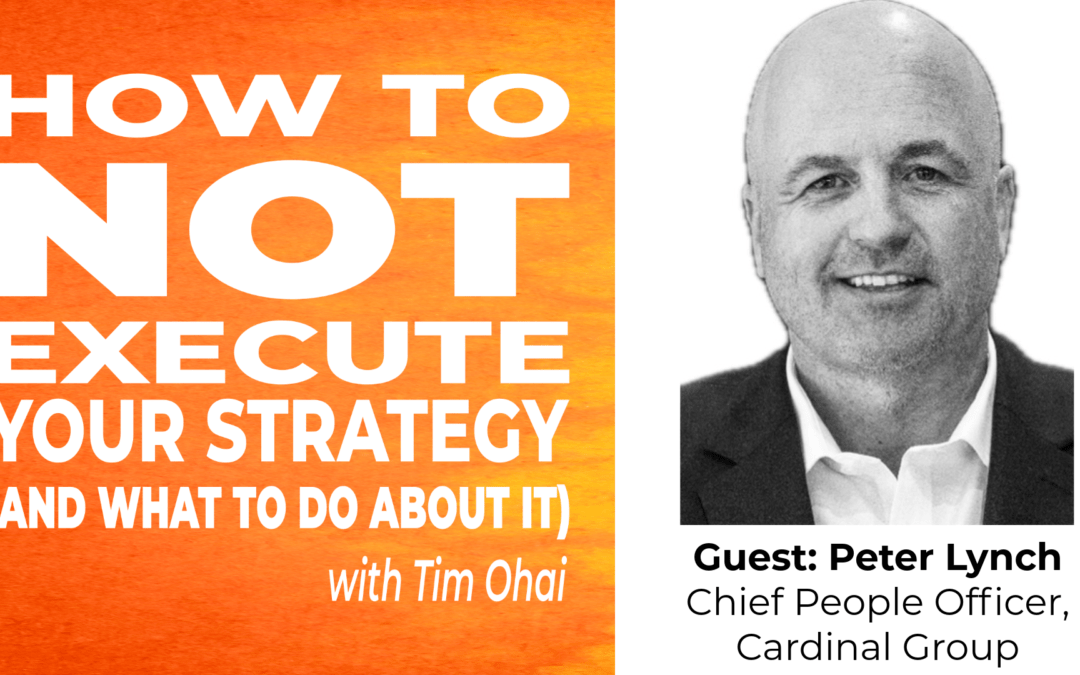How to NOT Execute Your Strategy (S2E8): Peter Lynch
Peter Lynch is the Chief People Officer of the Cardinal Group, where he and his team have consistently been recognized for their ability to create an engaged and thriving organization. He is also a tech entrepreneur, author, and TEDx speaker. Peter is responsible to draw the potential out of every leader in his organization – and drive business results at the same time. In this episode, we explore the best practices he uses to build high-performing team leaders.
- Find the audio version on your favorite platform or go directly via RSS.com
- Watch this episode on Youtube
Three key concepts:
- Storytelling is a fantastic leadership skill, but it can become a weakness. Your team won’t always believe the story you are telling, so you need a compelling reason for everyone to accept whatever disruption your strategy may create.
- Remember the Toyota handwashing principle – get on the factory floor! You must spend time with the people who are executing the strategy to observe and listen to what they have to say. It will give you both valuable insights and a potential business case to drive further adoption.
- Don’t be a super chicken. Being yoked together as a team releases exponential power. When the individual players on your team see the coming disruption as the catalyst for magic, they will volunteer to sacrifice in a way that makes the group even more effective
BONUS – Leader guide: Use the following questions for (a) self-reflection as a leader and/or (b) a great discussion with your team.
1) Listen to the full episode before this discussion.
2) Honest question: Do you think our culture rewards and promotes “super chickens”? Why or why not?
3) In 10 words or less, define what a great team-based culture looks like. Share your answers.
4) How does a team-based culture ensure exceptional performance?
5) What do you think are the best practices of leaders who “get on the factory floor” to ensure that teams produce at a high level? How well do our leaders do these practices? Why?
6) Looking at our efforts now, what should we be doing to ensure that we keep the “factory floor” perspective part of how we drive and support our overall team performance?
7) Option: Take time right now to define exactly what that looks like (the outcome(s), metrics, and requirements).
If you enjoyed this episode, please share it with at least one person. And leave me a review on whatever platform you engaged this podcast. Your feedback is invaluable to me.
Holomua. Onward and upward.
All the best ~ Tim
PS Like what you’re reading? Please share this content with a friend so they can join the community.


Recent Comments